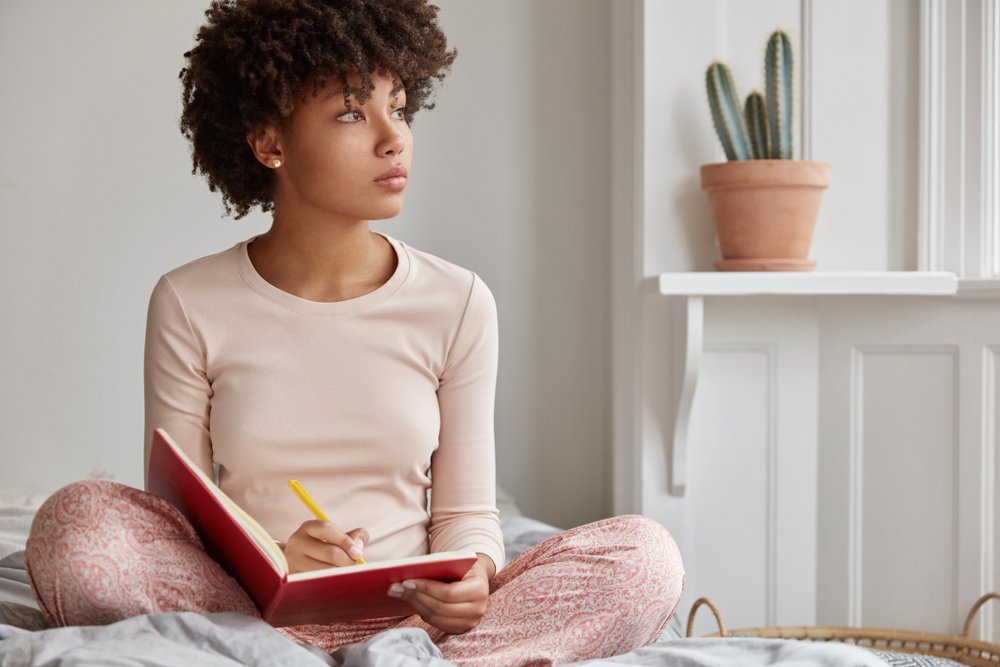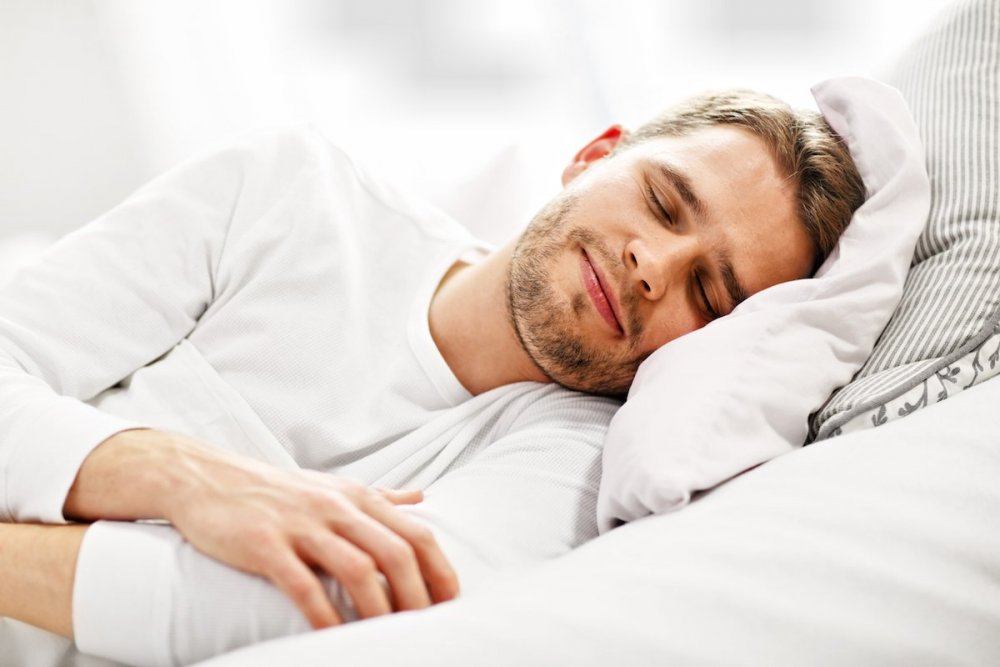If you have trouble drifting off at night, these 14 sleep hacks from Dee Marques will help you on the way to the land of nod more easily. Tossing and turning will soon be a thing of the past...
Sleep problems can be incredibly disruptive to daytime activities and have a negative impact on our health and happiness. But, fortunately, if you can't rest well on a regular basis, there are many sleep hacks you can put into practice to improve the quality of your rest time.
Some sleep problems are typically associated with the aging process. Older adults often report that both the quality and quantity of their sleep is affected. They become more sensitive to their environment, are more likely to take medication that interferes with sleep, and more likely to experience other age-related conditions, such as producing less melatonin, the hormone responsible for regulating sleep.
RELATED: How to Do Yoga Nidra For Sleep: 4 Steps and Script
Other common problems include insomnia, multiple waking during the night, restless leg syndrome, and a reduction in the total number of sleep hours, as well as sleep apnea, whereby breathing gets blocked during sleep.
14 sleep hacks for a good night's rest
Developing better sleep has a positive effect on our health, and scientific studies prove that some age-related conditions improve when we get enough restful sleep. Indeed, this is the case of inflammation, heart disease, and depression.
RELATED: How to Stop Thinking About Something: 9 Strategies
There’s also a direct link between sleep and cognitive function, as older adults with sleep problems report poor memory, attention span issues, and higher stress levels. By contrast, good sleep brings benefits ranging from increased emotional well-being to better concentration, higher tolerance for pain, and a stronger immune system. So, if you can't sleep well, follow these 14 science-backed sleep hacks and learn how to fall asleep quicker today.
1. Bedtime ritual
We're creatures of habit, and as we age, our threshold for changes in our daily routine becomes lower. Consistency in our bedtime routine helps set our brains in the right mood and sends the signal that it’s time to switch off for the day. Plus, an unwinding routine can help counter any triggers that cause us to stay awake, so do whatever helps your body and mind relax, whether it's listening to music, aromatherapy, writing in your journal, meditation or self-massage.

Writing a journal is a ritual sleep hack shutterstock/WAYHOME studio
2. No electronics in the bedroom
It's hard now so many of us are currently working from home, but our next sleep hack is to try not to use the bedroom as a second living room or office. Instead, keep it for the purpose for which it is intended: sleep!
Indeed, studies have shown that exposure to blue light (light given off by electronic devices) interferes with our ability to get a good night's rest, so if you’ve grown used to reading on your e-reader, phone or tablet before bed, consider switching back to printed books. If you must use your electronic devices, change the brightness settings or use a blue-light blocking app.
3. Avoid other bright lights
In addition to blue light, bright light from regular light bulbs can also disrupt sleep patterns. Studies have found that bright home lighting interferes with melatonin and disrupts the circadian rhythm (our internal body clocks), making our bodies believe that the day is still young and delaying sleep onset.
“If you can't rest well on a regular basis, there are many sleep hacks you can put into practice to improve the quality of your rest time.”
So, for better rest, or next sleep solution is to use dimmers or avoid bright light for at least one hour before bedtime, although some researchers recommend a longer window of up to three hours.
4. Beware of caffeine
Yep, this is one sleep hack we know you're already aware of. But caffeine is not only present in coffee or tea (including decaf varieties), but also in chocolate, energy bars, some soft and diet drinks and ice cream that contains chocolate or coffee. Stimulants cause an increase in blood pressure and stress hormones, which is not what you want right before going to bed.
It’s important to find out what your “cut-off” time for caffeine is. Be aware that it may change as you get older, as some studies report that caffeine sensitivity changes as we age. You should also take into account that caffeine interacts with certain medications that are usually prescribed to older adults. So, if you've recently started taking drugs to treat asthma or respiratory disease, antibiotics, estrogen, thyroid medication, or any drugs that slow down blood clotting, talk to your doctor about possible interactions.

Watch yourself: find out what your cut off time for caffeine is shutterstock/Dragon Grkic
5. Eat a light dinner
When planning your dinner, it’s best to avoid eating spicy, salty or oily foods. Also, try to reduce or avoid foods that contain starches and simple carbs, such as pasta or bread. These are hard to digest, can induce heartburn, and cause insulin levels to spike, meaning you may experience a sugar crash in the middle of the night.
6. Remove diuretics
Keeping on the diet sleep hacks, be careful of consuming food and drink that might have you waking to head to the bathroom in the night. Tea and fruit juices are common diuretics (foods that makes us urinate), but you should also be aware of less obvious culprits such as celery, cucumber, watermelon, ginger, asparagus, lemon, beetroot, cabbage and pineapple. Plan your dinner so that there’s only a small amount of any foods that contain a high amount of water, which may wake you up in the night.
7. Increase activity levels
Physical activity such as mindful running and swimming can help you fall asleep, as long as you find the right time to exercise. Indeed, working out right before bed may not be not be the ideal sleep hack since exercise increases the heart rate and releases stress hormones like adrenaline. Generally speaking, avoid exercising within three hours of bedtime.

An afternoon jog can prepare you for rest shutterstock/Rido
8. The right temperature
If you can't sleep well, it could be that your bedroom is too warm. Your sleeping space needs to be set up in a way that helps you unwind and fall asleep easily. One sleep hack is to pay special attention to temperature, because as we age, circulation to hands and feet lessens, and it’s easier to feel cold.
“If you can't sleep well, it could be that your bedroom is too warm. Your sleeping space needs to be set up in a way that helps you unwind and fall asleep easily.”
A study found that having warm feet helped people fall asleep faster, so use an electric blanket, socks, or even a hot water bottle to warm up. And although everyone is different, research points at the ideal bedroom temperature is somewhere around 20°C.
9. Don’t postpone bedtime
Most of us rely on an alarm clock to wake up, but setting an alarm to remind you it’s time to go to bed may be useful if you find yourself postponing your bedtime again and again. This sleeping hack will help you establish a routine and train your body and mind to go to bed at the same time every night.
10. Choose quality mattress and pillows
The aging process changes our bodies, and having good support for the spine and neck becomes particularly important. If you have trouble falling asleep or wake up feeling tired and achey, it may be time to replace your mattress and pillows. Scientists found that a medium-firm mattress can help with back pain, which is common in older adults. And less pain equals better sleep.
Choosing quality pillows is another sleep solution
11. Daytime naps
Naps can help us feel more alert and rested, but try not to do so for more than 30 minutes, and do it at the same time every day (not in the evenings, however). In fact, naps should not replace lost sleep at night, otherwise you will be aggravating sleep problems and making it harder to get into a regular night-time sleep routine.
MORE LIKE THIS:
- Cat Naps – 5 Health Benefits of Taking a Siesta
- Deep Sleep Meditation – the Benefits You Can Take to Bed
- Feel Stress-Free Fast – 11 Science-Backed Techniques
12. Learn how to disconnect
It’s easy to use the time we have before we fall asleep to go over our day in our heads, but this can easily turn into a formula for worry. Instead, stop ruminating and replace this habit with something that sets your mind on a positive note, such as writing a gratitude journal or meditating.
“Keeping on the diet sleep hacks, be careful of consuming food and drink that might have you waking to head to the bathroom in the night. Tea and fruit juices are common diuretics.”
Also, choose your bedtime reading materials carefully, since anything intellectually demanding or even a highly-engaging thriller may cause your brain to go into alert mode.
RELATED: How to Meditate in Bed for Beginners
13. Don’t toss and turn
Being aware of the fact that 'sleep is not happening' may cause you to feel stressed and anxious, creating a catch-22 situation that will not help you get further shut-eye. If you can’t sleep, get out of bed and read, write, or do any other soothing activity that’s part of your night-time ritual until you feel sleepy again.
14. Vitamins and good sleep
Our final sleep hack concerns vitamins. Vitamin deficiency is one of the causes of insomnia, since some B-group vitamins play a key role in the production of melatonin. But at the same time, taking certain vitamins right before going to bed can be counter-productive.
A study from the USA revealed that vitamin users were more likely to wake up during the night, and while the exact link between vitamins and sleep quality isn't confirmed, you may want to choose another time to take vitamins and supplements to be on the safe side.
Conclusions: sleep hacks and solutions
Although the aging process can negatively affect our ability to get a restful night of sleep, you should remember that you’re not powerless. If you're tired (literally!) of asking yourself 'why can't I sleep?', following our 14 sleep hacks should increase your chances of enjoying better sleep and feeling more alert. This will help you to achieve greater happiness and a healthier lifestyle, irrespective of your age. ●
Main image: shutterstock/Kamil Macniak
happiness.com | The fine art of being: learn, practise, share
Are you a happiness.com member yet? Sign up for free now to:
■ enjoy our happiness magazine
■ share and support in our happiness forum
■ learn with free online Academy classes
Gratitude | Nature | Stress Management
Written by Dee Marques
 A social sciences graduate with a keen interest in languages, communication, and personal development strategies. Dee loves exercising, being out in nature, and discovering warm and sunny places where she can escape the winter.
A social sciences graduate with a keen interest in languages, communication, and personal development strategies. Dee loves exercising, being out in nature, and discovering warm and sunny places where she can escape the winter.



Join the conversation
You are posting as a guest. If you have an account, sign in now to post with your account.